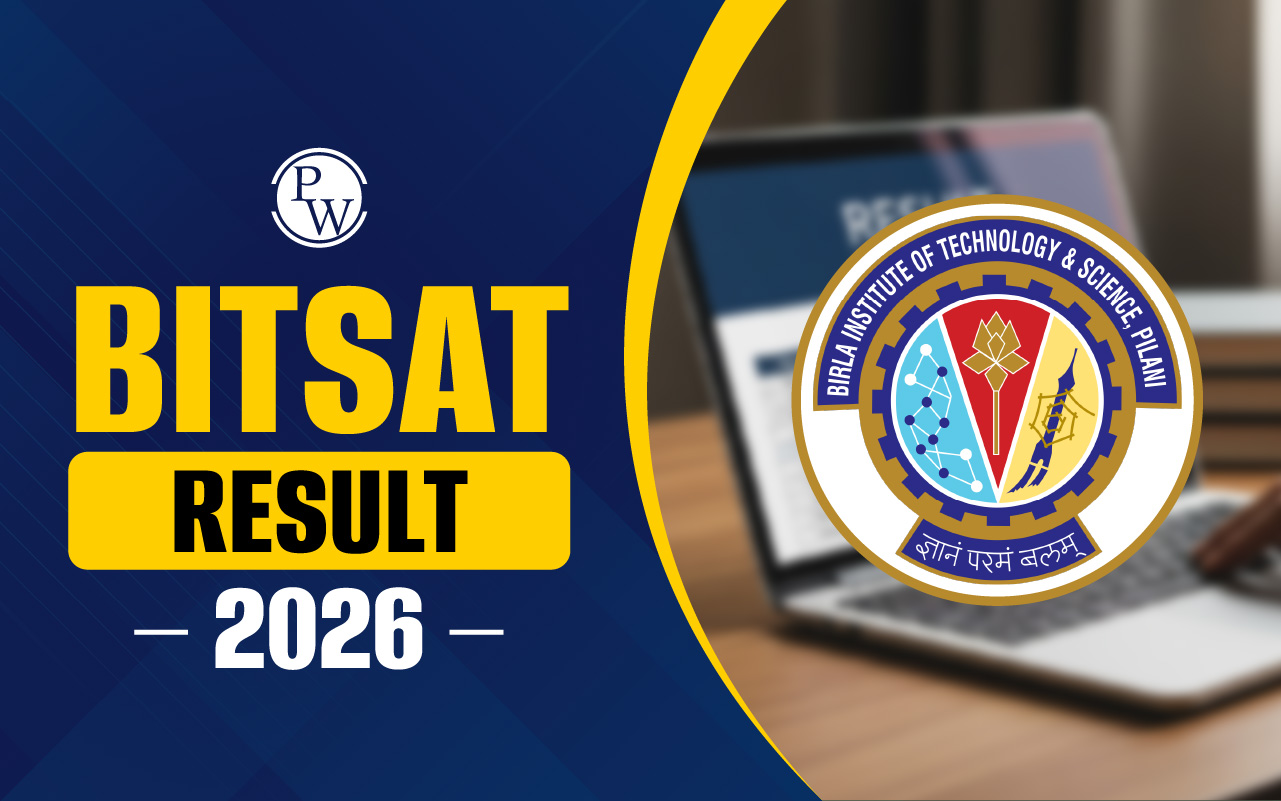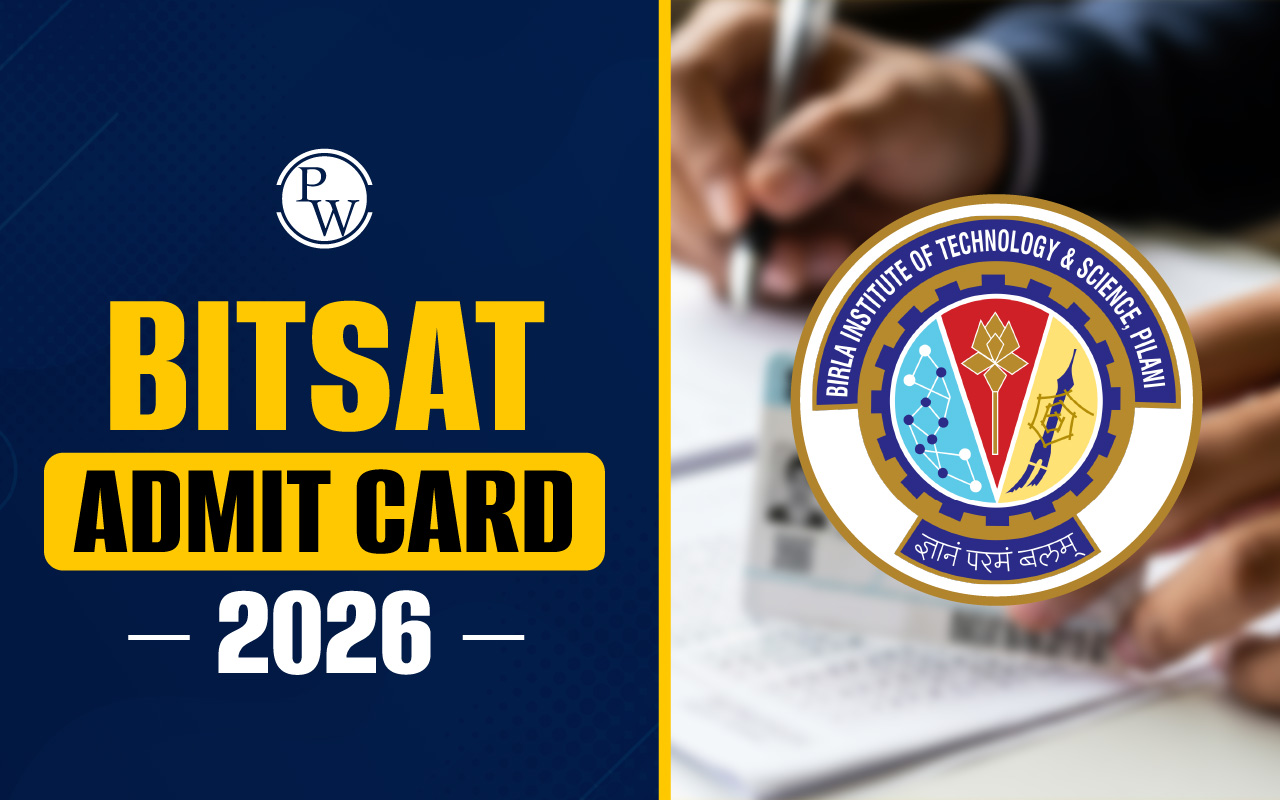
What is the Difference Between JEE Main and JEE Advanced?: For students preparing for JEE Main and JEE Advanced, understanding the differences between the two is crucial. These exams mark the beginning of a challenging yet rewarding journey toward admission into India's top engineering colleges. While JEE Main serves as the qualifying exam for entry into NITs, IIITs, and other government-funded technical institutions (GFTIs), JEE Advanced is exclusively for securing a seat in the prestigious Indian Institutes of Technology (IITs), well-known for their strict academic standards and focus on creativity and innovation. Though both exams are interconnected, they differ significantly in terms of eligibility, difficulty level, syllabus coverage, exam structure, and the institutions they cater to. A detailed comparison is provided to help aspirants clearly understand the difference between JEE Main and JEE Advanced and plan their preparation effectively.
What is Difference Between JEE Main and JEE Advanced?- Conducting Authority
The JEE, which stands for Joint Entrance Examination, is a national-level engineering entrance test conducted by the National Testing Agency (NTA) to help aspirants gain admission to courses like B.Tech, B.Arch, and more. It is held in two stages: JEE Main and JEE Advanced. JEE Main acts as the qualifying exam for institutions such as NITs, IIITs, and other GFTIs, whereas JEE Advanced, conducted by the IITs on a rotational basis, is required for admission to the prestigious Indian Institutes of Technology (IITs). For 2025, JEE Advanced has been conducted by IIT Kanpur. Although both exams are closely linked, they differ significantly in eligibility criteria, exam structure, and syllabus coverage. Read on to discover the detailed comparison between JEE Main and JEE Advanced.
JEE Main vs JEE Advanced- Eligibility Criteria
When aspiring for a career in engineering, understanding the JEE Main vs JEE Advanced eligibility criteria is essential. While both exams serve as key milestones on the path to securing a seat in prestigious institutions like NITs and IITs, they differ significantly in terms of eligibility requirements. Let’s break down the differences between JEE Main and JEE Advanced eligibility criteria here:
JEE Main Eligibility
JEE Main is the initial stage toward securing admission into B.E. and B.Tech. programs in NITs, IIITs, and other centrally funded technical institutions. To be eligible for this exam:
- Aspirants must have passed their Class 12 board exams in relevant subjects with at least 75% marks (for general category) or 65% for SC/ST students.
- Alternatively, applicants who rank in the top 20 percentile of their respective board exams are also eligible.
- Those who have completed their boards in the last two years can appear for JEE Main.
JEE Advanced Eligibility
JEE Advanced, required for admission to IITs, has a more selective eligibility criterion. Only the top performers from JEE Main can attempt this exam. To qualify:
- Applicants must be among the top 2.5 lakh scorers in JEE Main.
- Additionally, they should have passed their Class 12 board exams within the last two years, ensuring the applicant has current academic knowledge.
What is the Difference Between JEE Main and JEE Advanced?- Number of Attempts
The number of attempts allowed for JEE Main and JEE Advanced is another key difference between the two exams. For those aspiring to get into top engineering institutions like NITs and IITs, it is essential to know how many chances they have to clear each exam. Here’s how the JEE Main vs JEE Advanced number of attempts differs:
JEE Main: Number of Attempts
For JEE Main, applicants are allowed to sit as many times as they wish. The exam is conducted twice a year, and applicants can appear in both sessions in the same year. This flexibility allows them to attempt the exam multiple times following their Class 12 completion. If one feels they can improve their scores, they have a chance to take the exam again in the next session.
JEE Advanced: Number of Attempts
JEE Advanced is more restrictive when it comes to the number of attempts. Aspirants are allowed to attempt the exam a maximum of two times in two consecutive years. This means that an aspirant who qualifies for JEE Advanced in one year can only try again the next year, but no further attempts are allowed beyond this two-year window.
JEE Main vs JEE Advanced – Total Number of Papers & Exam Mode
When comparing JEE Main vs JEE Advanced, the total number of papers and the exam mode are important factors to consider. Both exams follow different formats, which aim at different types of aspirants depending on their preferred engineering programs.
JEE Main: Total Number of Papers & Exam Mode
JEE Main is divided into two papers depending on the course an applicant is applying for:
- Paper 1 (for B.E./B.Tech.) is conducted in online mode through a computer-based test (CBT).
- Paper 2 (for B.Arch and B.Planning) is an offline, pen-and-paper exam for aspirants wishing to enter architecture or planning courses. This paper consists of sections that test drawing and planning skills.
JEE Advanced: Total Number of Papers & Exam Mode
JEE Advanced consists of two compulsory papers:
- Paper 1 and Paper 2 are both conducted in online mode. Applicants must appear for both papers to be eligible for admission to IITs.
- For those interested in pursuing B.Arch, they need to pass both of these papers and then qualify for the Architecture Aptitude Test (AAT) for admission into architecture programs at IITs.
JEE Main vs JEE Advanced – Purpose of Exam
The purpose of the JEE Main and JEE Advanced exams differs based on the institutions they target. Understanding the difference between JEE Main and JEE Advanced can help aspirants set their goals accordingly.
JEE Main Exam Purpose
The primary purpose of JEE Main is to provide admission to undergraduate engineering programs in NITs, IIITs, and other centrally funded technical institutions.
- It also serves as an eligibility test for JEE Advanced. Applicants who pass JEE Main can secure seats in B.E., B.Tech, B.Arch, and B.Planning courses at top engineering institutions across India, except for IITs.
JEE Advanced Exam Purpose
On the other hand, JEE Advanced is specifically designed for students aspiring to gain admission to the prestigious Indian Institutes of Technology (IITs). Only the top qualifiers from JEE Main are eligible to appear for JEE Advanced.
- The exam focuses on selecting the best applicants for various engineering and architecture programs at the IITs, highlighting a higher level of problem-solving skills and in-depth subject knowledge.
JEE Main Exam Pattern vs JEE Advanced Exam Pattern- What’s the Difference?
The exam patterns for JEE Main and JEE Advanced differ significantly in terms of structure, question types, marking schemes, and more. Understanding these differences is vital for aspirants aiming for either exam. Check out JEE Main Exam Pattern vs JEE Advanced Exam Pattern differences here:
JEE Main Exam Pattern Overview (Paper 1 for B.E./B.Tech.):
-
Mode of Exam: Computer-Based Test (CBT)
-
Subjects: Physics, Chemistry, and Mathematics
-
Type of Questions: 60 Multiple Choice Questions (MCQs) and 15 Numerical Value Answer Questions
-
Duration: 3 hours
-
Total Marks: 300
-
Marking Scheme: For MCQs: +4 for correct responses, -1 for incorrect answers. For non-MCQs: +4 for correct responses, no negative marking for incorrect or unattempted questions.
JEE Advanced Exam Pattern Overview (Paper 1 and Paper 2 for B.E./B.Tech):
-
Mode of Exam: Computer-Based Test (CBT)
-
Subjects : Physics, Chemistry, and Mathematics
-
Type of Questions: A mix of MCQs and Numerical type questions
-
Duration: Each paper is 3 hours.
-
Total Marks: Varies each year
-
Marking Scheme: The marking scheme changes annually, with different weightage of marks and negative marking for correct and incorrect responses.
Check Out - JEE Previous Year Question Papers
JEE Main Exam Pattern vs JEE Advanced Exam Pattern Key Differences:
-
Exam Mode : Both JEE Main and JEE Advanced are conducted in CBT mode, but JEE Main offers a broader range of regional language options.
-
Question Type : JEE Main has a fixed number of questions (MCQs and numerical), while JEE Advanced has more complex and variable question types.
-
Marking Scheme : JEE Advanced introduces a variable marking scheme that changes annually, making it more unpredictable than JEE Mains fixed structure.
JEE Main Syllabus vs JEE Advanced Syllabus – What’s the Difference?
While both the JEE Main and JEE Advanced exams cover subjects like Physics, Chemistry, and Mathematics, there are noticeable differences in the depth and topics included in their syllabus. Find the JEE Main Syllabus vs JEE Advanced Syllabus differences below.
JEE Main Syllabus Overview
The JEE Main Syllabus focuses on topics from the CBSE Class 11 and 12 curriculum. It includes standard subjects such as Physics, Chemistry, and Mathematics, aligning with high school concepts. Some specific topics from JEE Main Syllabus include:-
Physics : Electronic Devices, Electromagnetic Waves, Communication Systems
-
Mathematics : Sets, Relations and Functions; Statistics and Probability; Trigonometry; and Mathematical Reasoning, etc. These topics are not part of the JEE Advanced syllabus, making JEE Main more straightforward in terms of coverage.
JEE Advanced Syllabus Overview
The JEE Advanced Syllabus builds on the CBSE curriculum but includes additional topics that go beyond the scope of JEE Main. Some additional topics in JEE Advanced include:
-
Physics : Thermal Physics, which delves deeper into heat and temperature-related concepts
-
Chemistry : Electrochemistry, which is not part of the JEE Main syllabus. JEE Advanced is known for testing a deeper understanding of concepts and often includes more challenging problems that require higher-order thinking.
JEE Main vs JEE Advanced- Medium of Exam
The medium of the exam differs between JEE Main and JEE Advanced, offering applicants different language options to choose from during the exam:
-
JEE Main : Conducted in 13 regional languages, which are Urdu, Assamese, Bengali, Gujarati, Tamil, Kannada, Odia, Marathi, Malayalam, Punjabi, and Telugu, along with English and Hindi. This broad range of language options allows applicants from various linguistic backgrounds to take the exam comfortably.
-
JEE Advanced : Offered in only English and Hindi. The limited language options in JEE Advanced reflect the more specialized nature of this exam, catering to aspirants aiming for the IITs.
JEE Main vs JEE Advanced- Which is Harder?
Determining which exam is harder between JEE Main and JEE Advanced depends on various factors, including the aspirant's preparation level, the exam's syllabus, and past year's difficulty level. However, JEE Main is generally considered less challenging compared to JEE Advanced.
-
JEE Main Difficulty Level: JEE Main is generally considered easier than JEE Advanced. It primarily evaluates aspirants on the standard Class 11 and 12 syllabus. The questions are often direct and formula-based, allowing students to apply their knowledge without needing extensive conceptual understanding. With 75 questions in total, the exam mainly tests speed and accuracy.
-
JEE Advanced Difficulty Level: In contrast, JEE Advanced is regarded as tougher. It goes beyond the standard syllabus and includes additional topics. The questions are concept-based and often require a deep understanding of the subjects, frequently combining multiple concepts in a single question. This exam not only assesses speed but also emphasizes problem-solving skills, making it more challenging for aspirants.
Study Material For JEE 2026 Preparation
Physics Wallah offers comprehensive study material for jee preparation. including well-structured video lectures, detailed notes, practice questions, and test series. The material covers all JEE main topics, ensuring a strong conceptual understanding and effective problem-solving skills.
What is the Difference Between JEE Main and JEE Advanced? FAQs
What is the difference between JEE Main and JEE Advanced?
Which is more tough, JEE Main vs JEE Advanced?
What is the difference between the JEE Main and JEE Advanced syllabuses?
Is JEE Main qualification necessary for JEE Advanced?
Is it possible to get into IITs with only JEE Main?










